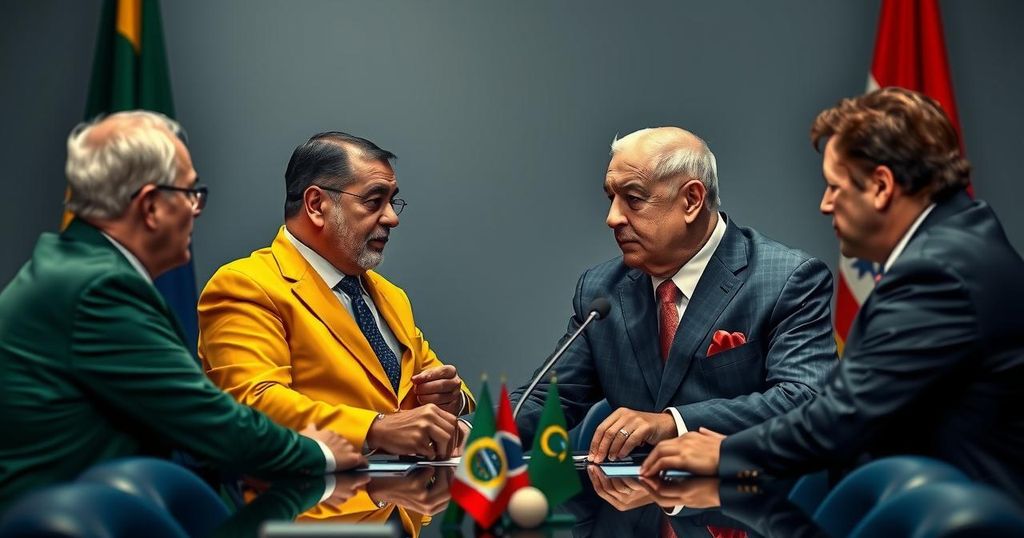Xi Jinping’s State Visit to Brazil: Strengthening Bilateral Relations and Global South Leadership
Chinese President Xi Jinping will visit Brazil to enhance bilateral ties with President Luiz Inacio Lula da Silva. This meeting, occurring amidst global geopolitical challenges and a shifting U.S. stance under Donald Trump, aims to address economic cooperation and trade dynamics. Brazil, focusing on increasing value-added exports, seeks to reposition itself while both nations mediate international conflicts and assert leadership in the Global South.
President Xi Jinping of China is set to make a state visit to Brazil, seeking to strengthen ties with Brazilian President Luiz Inacio Lula da Silva. This meeting, following Xi’s fruitful engagements at recent G20 and APEC summits, occurs at a crucial time as both nations aim to assert their roles as leaders in the Global South amidst global instability marked by conflicts in Ukraine and the Middle East. Xi is anticipated to discuss enhancing bilateral relations and addressing mutual development strategies with President Lula. As the largest trading partner for Brazil, China’s trade with the South American nation exceeded $160 billion last year, focused largely on primary commodities such as soybeans. Lula’s administration aims to shift this trade dynamic toward value-added exports while maintaining a diplomatic balance between China and the United States. With recent American political shifts foreshadowing a more confrontational stance under the potential return of Donald Trump, Brazil perceives an opportunity to recalibrate its international positioning. Xi’s visit commemorates 50 years of diplomatic relations between Brazil and China, as both countries continue their cooperative efforts in mediating international conflicts. Analysts anticipate that Lula will advocate for enhanced economic interactions that benefit Brazilian enterprises while simultaneously exploring Brazil’s role on the global stage in light of the United States’ potentially reduced influence.
The meeting between President Xi Jinping and President Luiz Inacio Lula da Silva in Brasilia is significant as it aligns with broader geopolitical shifts and the challenges posed by evolving U.S.-China relations. China has emerged as Brazil’s primary trading partner, with substantial trade volumes primarily involving agricultural products. Lula’s administration is focused on advancing Brazil’s economic interests by increasing the export of more sophisticated goods while also navigating the dynamics of Chinese investment amid concerns from the U.S. regarding the implications of such relationships. This bilateral engagement occurs against a backdrop of shared interests in enhancing political and economic cooperation and addressing global challenges through a united Global South framework.
In conclusion, President Xi Jinping’s visit to Brazil signifies a pivotal moment for 50 years of diplomatic relations between the two nations, emphasizing the importance of strengthening economic ties amidst global uncertainties. With Brazil advocating for greater value-added exports and a recalibrated trade relationship, both leaders aim to navigate the complexities of international relations while positioning themselves as influential players in the context of diminished U.S. influence under a potentially confrontational regime. Their collaboration may serve to enhance not only bilateral ties but also the collective strength of the Global South.
Original Source: www.voanews.com




Post Comment